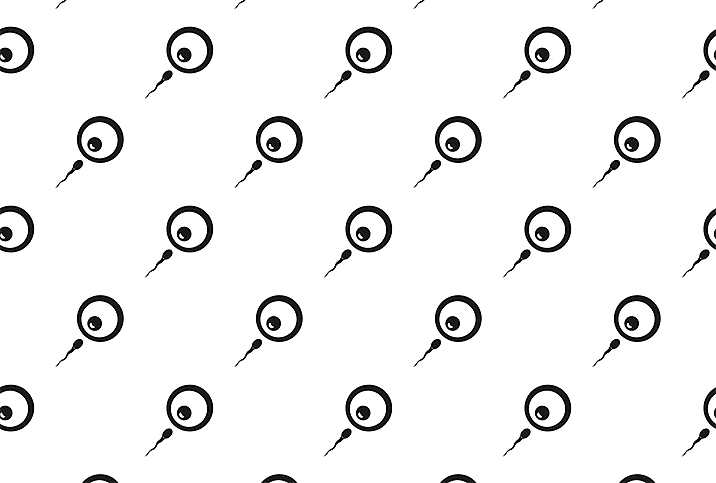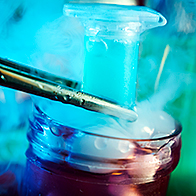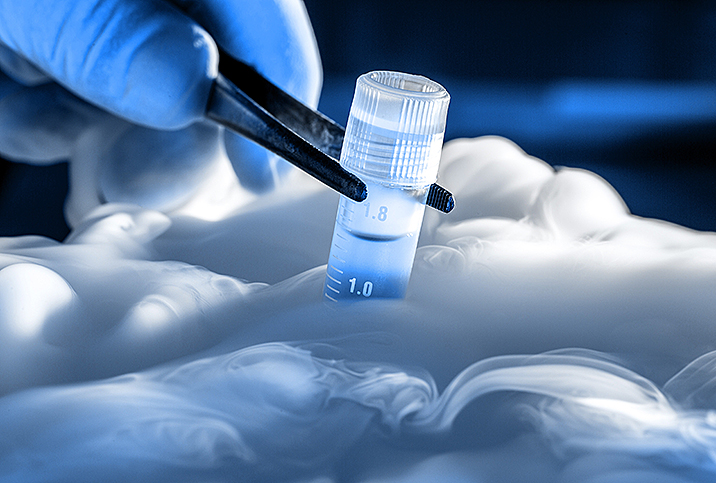The Ins and Outs of Sperm Donation

On a spring day a few months back, I visited a sperm bank for the first time. Like many young men, I was there to see if I would qualify to make a sperm donation. I was in the accepted age range of 18 to 39 years old and possessed the prerequisite of a college degree or enrollment in a college program.
Sperm banks have traditionally sought college graduates, locating themselves near selected universities and even actively recruiting on college campuses. Donors must also be in good health, a detail I wasn't worried about.
The process would include two initial visits, where I would provide samples. If those samples met their quality standards, I would be invited to an interview with sperm bank staff members who would go over my medical and family history.
Going to a sperm bank feels…weird
Something about the empty halls and the bare rooms at the sperm bank evoked the most impersonal aspects of healthcare. I walked into the room to find a single hard-plastic chair facing a TV and a remote control to take me to the streaming app of my choice.
I was here to masturbate.
If you don't want to do the deed to a Netflix special or a movie, then you might choose Pornhub. I searched for a video that did the trick, awkwardly deposited the sample into the bottle and then washed my hands. I left the container on a shelf on the way out and was all done. My sperm was passed along to someone I didn't know.
That part was easy, and as long as you've gone three days without ejaculation, your sample will likely be good enough to be approved. After doing this process twice in the span of a few weeks, I was informed my samples were good enough to continue. I congratulated myself on my healthy sperm, feeling relief that maybe I could earn a little extra money from regular sperm donations. Men are paid $25 to $100 per sample on average, according to Peter Schlegel, M.D., a urologist at Weill Cornell Medicine in New York City.
But I wasn't done yet
The next step was a virtual meeting with a biologist to talk about my background. They asked me about my family. A week later, I got a disappointing email. I had been rejected by the sperm clinic due to my past history of depression.
Though they can’t screen for depression, the sperm bank’s protocol included a physical screening and an interview to determine family history. They do this to gather any information about the donor’s medical background and determine any possible issues for future donorship. The personal and family medical history does hinge on one, thing, though: the honesty of the donor. I had told the truth about my history of depression, which ultimately disqualified me from the program.
Is depression a genetic defect or a symptom of society as a whole? When talking about reproduction and sperm viability, these questions are never easy. After all, more than 30 percent of men have experienced depression. This fact would invalidate one-third of men as sperm donors, men who would otherwise be healthy candidates for donation.
Deception for dollars?
Do men lie about their past to become sperm donors? The answer is easy to find: Yes. There have been many high-profile cases where men purposely obscured or lied about their past to become sperm donors.
One woman thought she had picked a donor who had a genius IQ and looked like Tom Cruise. The man was listed by the sperm bank as pursuing a doctorate in neuroscience engineering. She later found out he was a college dropout and a convicted criminal with schizophrenia.
This isn't an isolated story. It's not difficult to find examples of misrepresentation and unethical behavior in the world of sperm banks and donors. These issues necessarily raise some questions of accountability and process: How do sperm banks screen out nonviable candidates? Should they be required to do extensive background checks and due diligence as part of their service?
On a more personal level: If I hadn't disclosed my history with depression, would they have trusted I was telling the truth and not looked into my medical history any further?
As one sperm bank in San Diego related, their office is required to do genetic testing on all sperm donations for potential diseases. Beyond that, this sperm bank requires transcripts to prove the donor is actually a college graduate. They also conduct a physical screening and criminal background check to further ensure viability, as well as the aforementioned interview about the donor’s medical history and broader family history. This all goes above and beyond what is required by law.
According to a recent Vice documentary, sperm banks are subject to little or no external oversight. They are required to follow Food and Drug Administration regulations for the screening and testing of donors. The American Society for Reproductive Medicine (ASRM) provides recommendations for gamete and embryo donation, suggesting donor onboarding include detailed medical histories and psychological counseling, but sperm banks aren't required to follow them.
In a relatively unregulated industry, a variety of sperm banks has emerged. One anonymous sperm donor said that he went through regular physicals and extensive genealogical screening, and their samples were limited to 10 offspring. Based on this information, his sperm bank seems to have instituted stricter rules than some others.
Buyer beware
The pressure is on the consumer to find a reputable sperm bank. Mike Hsieh, M.D., a urologist who manages the Men's Health Center at the University of California San Diego Health, agreed that there needs to be more oversight of sperm banks. Hsieh explained that sperm banks have access to technology to genetically screen all samples and perform background checks on candidates. He said genetic screening for diseases should be standardized and candidate screening needs to be good enough to understand the true background of every donor.
"Screening for possible genetic conditions is very important for sperm donors," Schlegel said, adding that certain medical conditions—cystic fibrosis, kidney diseases, autism, schizophrenia and others—can reflect underlying genetic conditions that may make a donor less favorable for use.
The sperm bank and sperm donation appear to be here to stay: The market is only growing, with a projected 3.3 percent compound annual growth rate from 2021 to 2026.
Sperm bank customers should ask for accountability, especially in an industry where infertility and advancement in cryopreservation techniques are driving the demand for more sperm donors. LGBTQIA+ communities and single women have only added to this demand. Since the ethical implications of sperm donation affect donors, recipients, the facilities themselves and any resulting children, tight regulation would help to mitigate potentially messy legal situations in the future.
My sperm donation journey has come to an end, but for many others, making donations will continue to be a way to earn some extra cash and provide a service to people who want to start a family. As genetic technology improves, the industry will likely continue to adapt and change—hopefully, for the better.




















